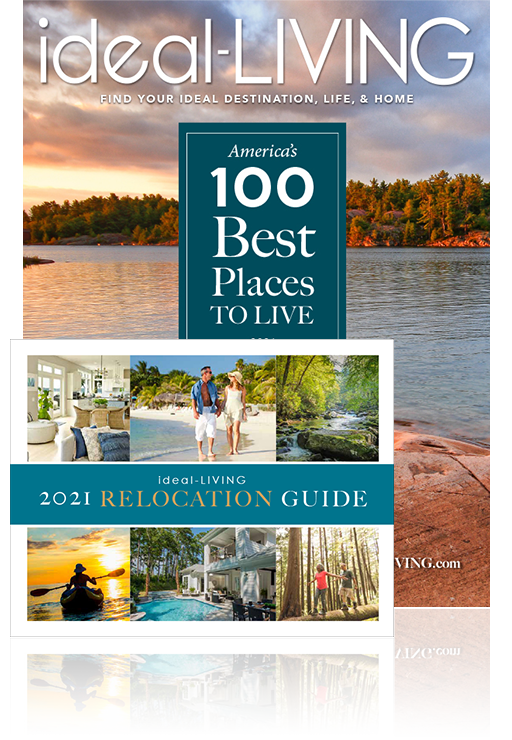Are Gated Communities a Good Investment?
Request Your Free Relocation Guide

Are Gated Communities a Good Investment?
Investing in a gated community property can offer a unique blend of exclusivity, security, and community living. However, like any investment, it’s essential to weigh the potential benefits and drawbacks. Whether you're a retiree seeking a serene lifestyle or a family looking for a safe environment, understanding the investment potential of gated communities is crucial.
The Appeal of Gated Communities for Investors
Gated communities are often synonymous with prestige and security, offering residents controlled access, enhanced privacy, and a range of amenities. This exclusivity can drive demand, making them attractive investments. But does this appeal translate into tangible financial returns?
Property Value Trends
One of the strongest arguments for gated communities as a sound investment is the premium they command in the real estate market. According to a study conducted by Florida Atlantic University, homes in gated communities typically sell for an average of $30,000 more than comparable properties in non-gated areas. This premium is largely due to factors such as enhanced security, maintained aesthetics, and a sense of exclusivity that appeals to buyers and increases demand (Florida Atlantic University). Additionally, gated communities often have homeowner associations that ensure the upkeep of common areas, further boosting the perceived value of these properties. For investors, this translates into higher resale values and potentially better long-term returns.
Resale and Rental Potential
Investing in a gated community can be particularly lucrative if you're considering renting out the property. High demand from families, retirees, and executives looking for secure living options ensures a steady stream of potential tenants. When it comes time to sell, the same demand typically results in faster sales and potentially higher returns.
The Impact of HOA Fees
While the exclusivity and amenities of gated communities are attractive, they come with a cost: HOA (Homeowners Association) fees. These fees cover the upkeep of shared spaces, security, and amenities, which can add up. For investors, it’s essential to factor these costs into your investment calculations, as they can impact overall profitability.

Assessing the Investment Potential
Luxury vs. Family-Oriented Communities
Different types of gated communities offer varying levels of investment potential. Luxury communities, with their high-end amenities and limited availability, often see the highest appreciation rates. Family-oriented communities, while potentially more affordable, can offer stable returns due to consistent demand from young families seeking secure environments.
Retirement Communities
Retirement-focused gated communities have become increasingly popular, especially in states like Florida and Arizona. These communities often include healthcare facilities, recreational amenities, and social clubs, making them highly appealing to retirees. This consistent demand can lead to steady property value appreciation and rental income potential.
Understanding the Costs and Risks
Like any investment, buying property in a gated community comes with its own set of risks and costs. HOA fees, restrictions on property modifications, and potential market fluctuations can all impact your return on investment.
HOA Fees and Community Rules
HOA fees can vary significantly, ranging from a few hundred to several thousand dollars annually, depending on the community’s location and amenities. Additionally, stringent community rules can limit your ability to make modifications to the property, which may affect its resale value.
Market Trends and Location Factors
The value of a property in a gated community can be influenced by broader market trends and local factors such as employment rates, the quality of local schools, and proximity to urban centers. It's essential to research the long-term economic outlook of the area before making a purchase.
Potential Financial Benefits
Investing in a gated community can offer several financial benefits, including:
- Appreciation in Property Value: Thanks to their exclusivity, properties in gated communities often appreciate faster than those in non-gated areas.
- Stable Rental Income: Gated communities attract tenants who value security and amenities, providing a steady rental income stream.
- Tax Benefits: Depending on the location, there may be specific tax benefits associated with owning property in a gated community.
Is a Gated Community the Right Investment for You?
Ultimately, whether a gated community is a good investment depends on your personal and financial goals. If you prioritize security, exclusivity, and a lifestyle-oriented community, then a gated community could be an excellent choice. However, it's essential to balance these benefits with the costs and potential risks involved.
Key Considerations Before Investing:
- Evaluate the HOA fees and rules.
- Research property value trends in the community.
- Consider the type of community that aligns with your goals (luxury, family, or retirement).
- Assess the long-term economic outlook of the area.
Let Us Help You Find Your Future Home
Gated communities can offer a blend of security, prestige, and community that is attractive to many investors. By carefully evaluating the costs, benefits, and long-term potential, you can make an informed decision about whether this investment aligns with your financial goals. Find details about the best communities in the locations that appeal most to you with our free Relocation Guide.
© 2026 ideal-LIVING Magazine • 265 Racine Dr #201 • Wilmington, NC 28403 • 910.763.2100

